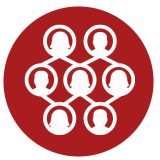There were some documents that respected the inclusive language criteria, largely in those faculties which had developed a gender equality plan before PLOTINA. However, we realized that a routine revision was not carried out and most of the text used nowadays in the university, for both internal and external purposes, did not take into consideration a gender equality and diversity point of view.
Reviewing institutional documents: regular revision of any text, communication, images, from a gender equality and diversity standing point and provision of relevant training
Problem (evidence)
Aims/objectives
To revise the main documents of general use, such as articles of association (statutes), internal regulations and policies and review wording from a gender equality and diversity point of view in order to attract a diverse student population. Also to change the culture for all staff preparing material for inward and outward facing communication.
Resources
Budget allocated for external providers.
Brief outcomes
- Revision of documents
- Increased awareness of the relevance of using gender inclusive language
- Annual training on gender inclusive language
- Short guide on gender inclusive language
Key area
The governance bodies, key actors and decision-makers
Type of action
Data gathering and analysis
Organization
Mondragon Unibertsitatea
Higher education institution
Action level of implementation
Researchers/professors and technical and administrative staff
Implementation
In the first stage, key general institutional documents were identified for review, especially those in common across all university faculties. 17 documents were identified and revised by experts on gender equality. The identified documents included: statutes-articles of association, Docentia institutional report, working regulation, pay system, annual report, strategic plan, academic regulation for undergraduate, master’s degree, doctorate degree, professional training, several guidelines, teacher´s evaluation manual, several communication manuals, etc.
PLOTINA team decided together with the experts about definitions and terms that were used in the education sector (the consulting team did not have expertise on education) so that the texts and the training could be accordingly revised. The same experts who revised the documents developed and delivered training and inclusive language guide (short guide available to everybody) to external communication officers (+ providers that work on marketing and communication activities of the cooperative so this work had greater impact beyond the university MU) and to representatives from different faculties.
The training last for 4 hours and is repeated every year and is now open to all academic staff. The first training was attended by 20 people with very positive feedback.
A guide on inclusive language (Basque and Spanish) was created and was published on the equality website: https://www.mondragon.edu/documents/20182/533143/hizkuntza-inklusiborako-gida.pdf/910cc16b-19dc-41e0-aa2c-df0e0d240dc9
Challenges
There has been no resistance towards the implementation of the task. However, limited financial resources made it necessary to prioritize documents to be revised.
There are no clear definitions and rules about what inclusive language means and guides are mainly recommendations (no consensus on how language could be more inclusive)
There are different recommendations about how to apply inclusive language in terms of sectors.
Coping strategies
Prioritize documents that may have a greater impact. Planning and timing the revision of remaining documents and forecasting a budget.
Consult external providers who specialise on gender equality and inclusive language.
Train the community so they generate appropriate text in the future.
Tips/strategies – Lessons learnt
- Consult external experts.
- Create short guides.
More detailed Outcomes/Impact
Increased awareness and use of gender inclusive language.
A negative consequence of the different perspectives of members is frustration with time wasted.


